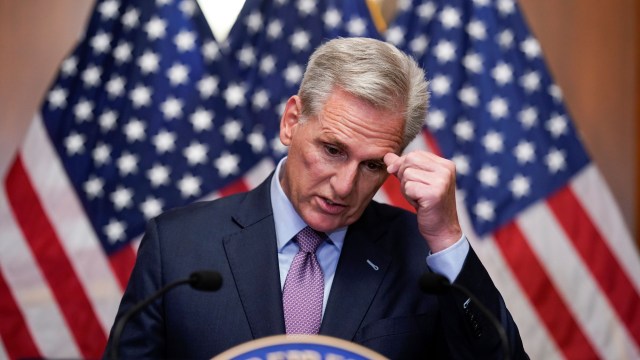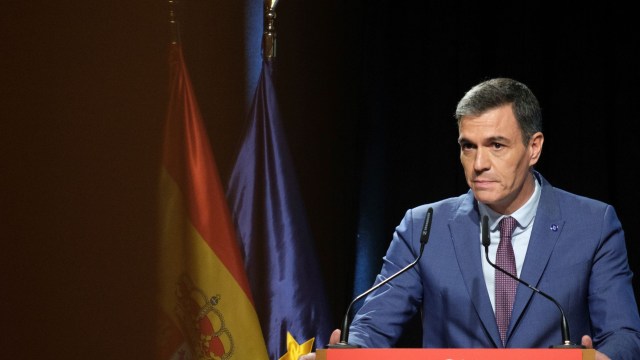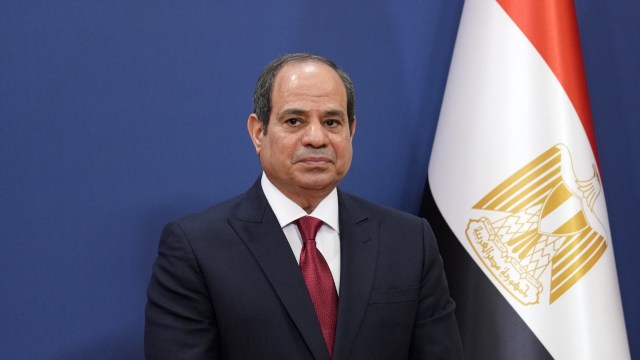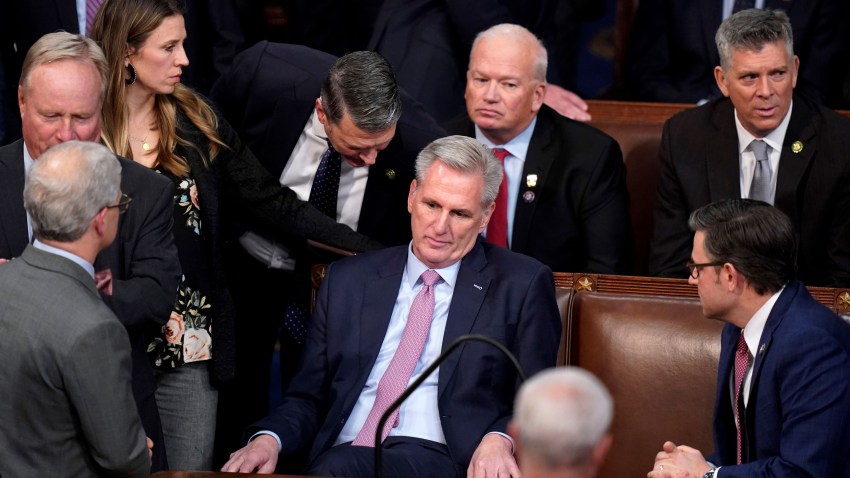Today at WPR, we’re covering political chaos in the U.S. and political drama in Spain.
But first, here’s our take on today’s top story:
United States: The U.S. House of Representatives on Tuesday voted to remove Speaker Kevin McCarthy, a Republican, from his position, leaving the House in a state of paralysis with no clear successor or timeline for choosing one. A far-right cohort of Republican representatives led the push to remove McCarthy after he worked with Democrats to temporarily avert a government shutdown over the weekend. (New York Times)
Our Take: As we wrote last week before the looming shutdown was averted, the obstructionism on display by far-right Republicans represents a form of democratic erosion in the U.S. that has implications for Washington’s global role. In terms of U.S. domestic politics, though, McCarthy’s ouster and the events that led up to it highlight the degree to which the Republican Party is now beholden to its far-right faction.
That mirrors a broader trend among establishment center-right parties in Europe, many of which have adopted a hard-right posture in the face of competition from far-right parties.
Get the Daily Review sent straight to your inbox every weekday.
In the U.K., the Conservative Party has increasingly adopted the rhetoric of the far right, especially on immigration, with the ascendance of its self-described National Conservative faction. In France, a similar shift has occurred within the Republicans party, which on many issues is now indistinguishable from the far-right National Rally party of Marine Le Pen. And though its bid failed, Spain’s People’s Party attempted to form a coalition with the far-right Vox party in the aftermath of July’s inconclusive elections.
As it stands, there are enough fault lines between these national movements to prevent a transnational European far right from emerging. But on a national level, the trend is eerily similar. Far-right parties are gaining ground. And while they have so far been able to enter government in only a few cases, their impact is also leading establishment center-right parties to shift further right.


The World Isn’t Ready for a Post-American World
Columnist Alexander Clarkson writes that, while no longer shocking, democratic dysfunction in Washington—like that on display yesterday—is stoking anxiety among U.S. allies over the country’s ability to sustain its global security commitments.
As the 2024 presidential election comes into view, the likelihood of further political paralysis in Washington has forced many other governments to ponder what a future without the U.S. as a coherent global actor might look like.
Catalonia Separatists Have Spain’s Sanchez Over a Barrel
With Spain’s right-wing parties failing last week in their bid to form a government following the country’s inconclusive elections in July, all eyes are now on acting PM Pedro Sanchez. In order to form a government, he will need the support of two Catalan separatist parties.

Sanchez has already approved one of their demands, but the parties have two remaining conditions: amnesty for Catalan separatists involved in the illegal October 2017 independence referendum and, more recently, the start of a process toward a legal referendum on Catalan independence.

We want to hear your take on the issues we cover. We’ll select one person from those who answer the question below to receive a free month of full access to WPR.
This week’s question: In return for normalizing relations with Israel, Saudi Arabia is demanding a U.S. security guarantee and assistance on its nuclear energy program. Should the U.S. meet those demands?

Egyptian President Abdel Fattah el-Sisi confirmed Monday that he will run for another term in elections scheduled for December. Sisi was first elected in 2014 after leading a military overthrow of an elected civilian president a year earlier, and he has since faced criticism for the government’s human rights record under his rule.
Egypt is also facing a gathering economic crisis amid rising inflation and mounting debt. As Alexander Clarkson wrote in December, the Sisi regime’s mismanagement means that Egypt is increasingly facing the same kind of longstanding economic dysfunction that pushed Lebanon over the edge.

Egypt’s Sisi Is Sitting on a Powder Keg
Dec. 7, 2022 | The corruption by elites that led to economic collapse and mass protests in Lebanon may presage similar dynamics in Sisi’s Egypt. Read more.
Earlier this year, the Dalai Lama introduced the 10th reincarnation of Bogd, the third-highest authority in Tibetan Buddhism and the spiritual leader of Mongolia. In doing so, he challenged the Chinese Communist Party’s claims over succession in the religion’s leadership, the New York Times reports.
Since the 9th reincarnation of Bogd—also known as Jebtsundamba Khutuktu—died in 2012, Mongolia has walked a geopolitical tightrope with China on one side and the Dalai Lama on the other, as Munkhnaran Bayarlkhagva wrote last year. The Dalai Lama’s announcement earlier this year removed the mystery surrounding Bogd’s identity, but not the potential tensions his introduction created for Mongolia’s relations with China.
The Battle for Tibetan Buddhism Will Be Decided in Mongolia
Feb. 8, 2022 | The reincarnation of Mongolia’s spiritual leader has left the country walking a geopolitical tightrope. Read more.

More From WPR
- Samuel Ramani on Russia and China’s partnership.
- Mary Gallagher on China’s global development ambitions.
- Emma Ashford on a potential Saudi-Israeli normalization deal.
- James Bosworth on Latin America’s gerontocracies.

